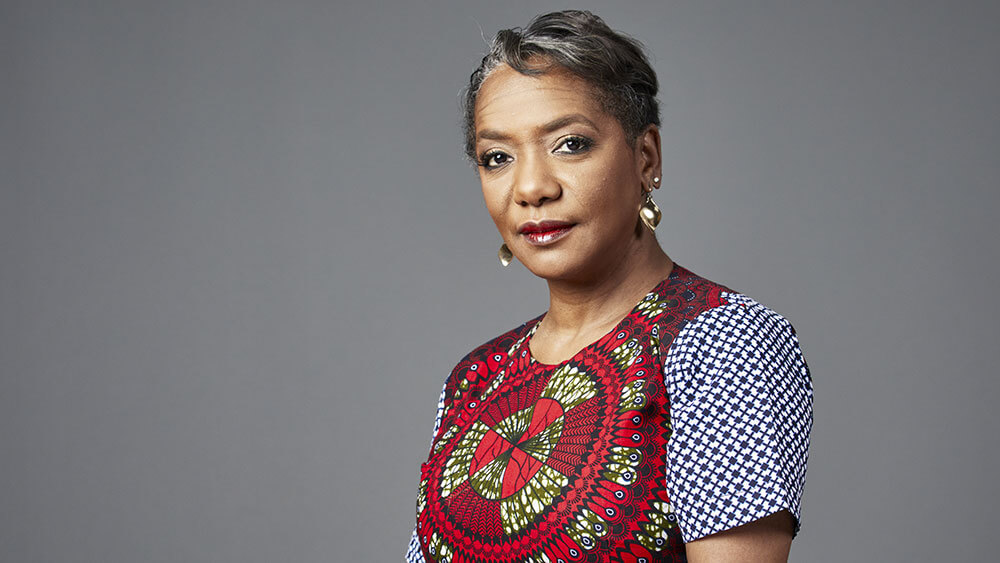
“Is DEI important? Set goals and measure outcomes. Make 20 percent of compensation depend on those goals. Eliminate people who refuse to comply. For DEI to stick, you need definition, determination, and data,” said PCMA EduCon Main Stage speaker Janet Stovall. (Scott Areman photo)
As one of only a handful of Black students on campus at Davidson College in North Carolina in the mid-’80s, Janet Stovall experienced racism and exclusion firsthand. Stovall will bring her experiences to her PCMA EduCon Main Stage session at 11:15 a.m. Thursday at the JW Marriott Desert Ridge in Phoenix, Arizona, and online.
Stovall, now senior client strategist at NeuroLeadership Institute (NLI), a global research firm and cognitive science consultancy, will discuss the business case for diversity, equity, and inclusion to drive business events and experiences with purpose.
Stovall’s own experiences, including her time at Davidson College, inform her work to this day. While at Davidson she initiated difficult conversations and by her graduation, she had devised a plan that is referenced today as the catalyst for changes that created a more diverse and inclusive Davidson.
In her 2018 TED Talk, “How to Get Serious About Diversity and Inclusion in the Workplace,” Stovall talks about that plan: “Project ’87.” In it, Stovall challenged Davidson to, by 1987, enroll 100 Black students, hire 10 Black professors, create five Black Studies classes, and hire one Black dean. “It didn’t seem particularly revolutionary, but what was different about it was,” she said in her talk, “we also challenged Davidson to say that if you don’t do this, we will question your commitment to diversity.
“It was a real problem. We put some real numbers to it. We gave them real consequences.”
Stovall said businesses can take the same approach as Project ’87 to create diversity and inclusion. “What’s really important to you? How do you make it important to everyone else?” she recently told Convene. “You develop KPIs and make people accountable. You tie it to compensation at significant levels. You don’t promote people who don’t embrace it.”
At the time of her TED presentation three years ago, Davidson had 185 Black students, 16 Black or multiracial professors, four Black deans, and “there’s an entire degree-granting Africana Studies Department,” Stovall said.
Stovall gave Convene a sneak peek at her session, answering questions via email.
MORE EDUCON: Better Together and Looking Forward
What will you be talking about during your presentation at EduCon?
This keynote covers the business case for diversity, equity, and inclusion, and how to truly integrate these initiatives to drive business events and experiences with purpose. We will also touch on the marketplace of the future, as more consumers across industries and touchpoints purchase from and interact with brands that align with their views.
[I’ll be addressing] why we should talk about diversity in the workplace — specifically race, and specifically in the business events industry — as well as how to differentiate between diversity, equity, and inclusion in the workplace (and why you should). [I’ll look at] the role of business in dismantling systemic racism, and strategies for leveraging difference.
How do event organizers bake DEI — and purpose — into their teams and the events they create?
It’s all about alignment. People may or may not agree DEI is important. But, unless they are actively undermining the company or trying to get fired, they have accepted and are agreeing to the corporate strategy. Tie DEI to corporate strategy — directly, consistently, comprehensively — and DEI becomes part of your culture. Also, tie your efforts to the stated DEI vision. Call the company on its commitments.
Another thing to consider? Shared language and superordinate goals. Shared language gives you a non-punitive baseline from which to launch difficult conversations. Superordinate goals — proposed by social psychologist Muzafer Sherif — are initiatives whose achievement depends on two or more social groups working cooperatively.
What kind of “real numbers” can organizers put to it (to quote your TED Talk)?
Is DEI important? Set goals and measure outcomes. Make 20 percent of compensation depend on those goals. Eliminate people who refuse to comply. For DEI to stick, you need definition, determination, and data.
Identify the intersections. Avoid holistic diversity initiatives. Recognize diversity is not inclusion and invest in upward mobility. How granular is your data? Differentiate it. Understand that there is disparity within the disparity, so track both gender and race. And set goals.
Please explain the difference between diversity and inclusion.
Diversity is something you have. Inclusion is something you do. Diversity is a numbers game. Inclusion is about impact. Diversity is a fact. Inclusion is a choice.
Drawing on your background, what main tenets of speechwriting would prove insightful to event organizers as they “script the story” of inclusive events this year and next year?
For speechwriters, the first question is to the speaker: “What do you want the audience to do, think, or feel as a result of this speech?” The second question a speechwriter asks is to herself: “What kind of speech would make that happen — informative, demonstrative, persuasive, or entertaining?”
The bigger case for inclusive events — diversity of ideas, the opportunity for different people to connect and work together on shared goals as equals, exposure to different people in different roles — is the framework for the script. But each company or client brings its own “why” for inclusion, its own reason for what diversity solves for.
Knowing why — in general — inclusive events matter and then how an event — in particular — can deliver what matters, is how you craft the story.
What are one or two things you would like the audience to take away from your talk and implement in their roles?
If you value diversity, you must be intentional about inclusion. And while you can mandate diversity, you must cultivate inclusion.
Michelle Russell is editor in chief of Convene.
